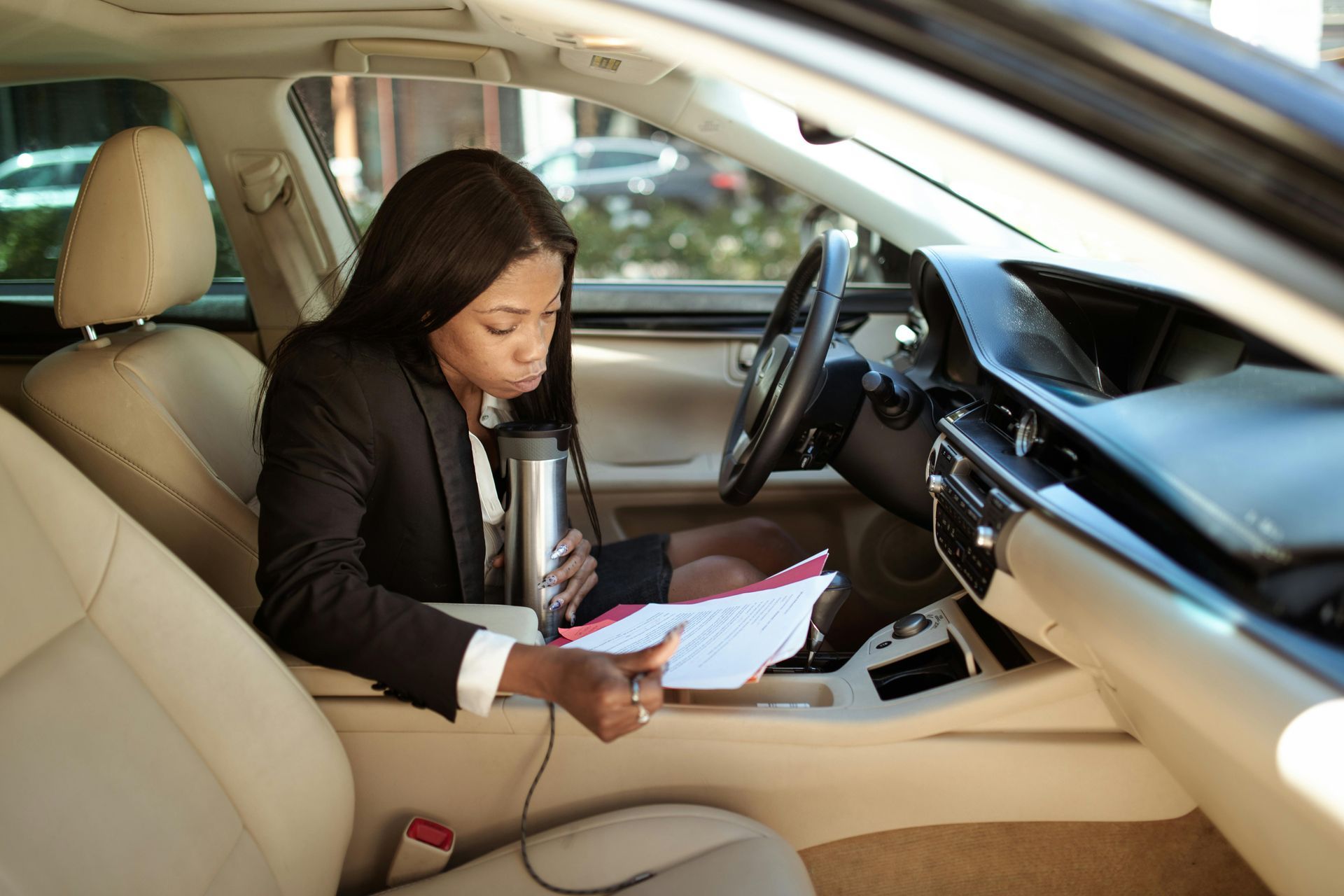Guide to Student Auto Shipping: Top Advice for College Relocation
Student’s Guide to Car Transport
- Time and Energy Savings: Moving to college already comes with a long list of things to do. Shipping your car means one less item on your to-do list. Instead of spending hours or even days driving, you can arrive at your destination fresh and ready to start your new adventure.
- Safety and Convenience: Long-distance driving can be exhausting and potentially risky, especially if you're unfamiliar with the roads or weather conditions. Shipping your car ensures it arrives safely without putting unnecessary miles or wear on it.
- Cost-Effective: When you factor in gas, lodging, and meals for a long road trip, shipping your car can often be a more affordable option. Plus, many car shipping companies offer student discounts or promotions.
- Ideal Timeline: Aim to book your car shipment at least 2-4 weeks in advance. This allows you to secure a spot during busy times like the start of the school year.
- Peak vs. Off-Peak Seasons: College move-in dates often coincide with peak shipping seasons, such as late summer and early fall. Booking during these times may be more expensive and harder to schedule, so planning ahead is key.
- College Schedules: Consider your school’s academic calendar when booking your shipment. Make sure to choose a delivery window that aligns with your move-in date or orientation schedule, so your car is there when you need it.
- Open Transport: This is the most affordable and popular option for students. Your car will be transported on an open carrier along with several other vehicles. While your car will be exposed to the elements, this method is generally safe and widely used.
- Enclosed Transport: If you have a luxury, classic, or high-value car, you might consider enclosed transport. This method offers extra protection since your vehicle will be shipped in a covered carrier. However, it is more expensive than open transport.
- Terminal-to-Terminal vs. Door-to-Door: Terminal-to-terminal shipping requires you to drop off and pick up your car at designated terminals, which can save money. Door-to-door service, on the other hand, is more convenient, as the carrier picks up and delivers your car directly to your chosen locations.
- Student-Friendly Companies: Look for companies that offer discounts or special services tailored to students. Some companies may have dedicated college move programs or offer promotions during peak moving seasons.
- Reviews and Reputation: Always check online reviews and testimonials to see what other students have experienced. Reputable companies will have positive feedback and transparent communication about their services.
- Insurance and Credentials: Make sure the company is fully licensed, bonded, and insured. Ask about their insurance coverage and what it includes to avoid any surprises if your car is damaged during transport.
- Comparing Quotes: Get quotes from multiple companies and compare not just the price but also the services included. Beware of quotes that seem too good to be true, as they may come with hidden fees or subpar service.
- Distance: The longer the distance, the higher the cost. Cross-country moves will naturally be more expensive than regional ones.
- Vehicle Type: Larger or heavier vehicles, such as SUVs or trucks, may cost more to ship than smaller cars.
- Timing: Booking during peak seasons or on short notice can increase your costs. Try to book during off-peak times or well in advance to secure lower rates.
- Discounts: Many car shipping companies offer discounts for students, so be sure to ask about any promotions or deals. Some companies may also offer group discounts if multiple students are shipping cars to the same destination.
- Clean Your Car: A clean car allows you to inspect it for any pre-existing damage and helps with the final inspection after delivery. Make sure both the exterior and interior are clean.
- Check for Maintenance Issues: Ensure your car is in good working order before shipment. Check the tire pressure, battery charge, and fluid levels. If your car isn’t running, let the shipping company know ahead of time, as this may require special handling.
- Fuel Level: Most companies recommend keeping your gas tank about a quarter full. This reduces the car’s weight and ensures there’s enough fuel for loading and unloading.
- Remove Personal Items: Take out all personal items from your car, as most companies won’t cover them under insurance. Plus, extra weight can increase your shipping costs.
- Pickup Process: The driver will inspect your car and note any existing damage. Make sure to be present or have a trusted person handle the pickup to review the inspection report and sign off on it.
- Delivery Process: Upon delivery, inspect your car thoroughly for any new damage. Compare it to the initial inspection report before signing off. If there’s any damage, document it with photos and report it immediately.
- Handling Issues: If any problems arise, such as delays or damage, contact the shipping company promptly. Most companies have customer service teams that can help resolve issues, but it’s important to have everything documented.
- Coverage: Most reputable companies include basic insurance in their shipping contracts. This typically covers any damage caused by the carrier, but it’s important to read the fine print and understand exactly what is covered.
- Additional Insurance: If you have a high-value car or want extra peace of mind, you can purchase additional insurance coverage. This may be worthwhile if you’re shipping your car a long distance or using open transport.
- Filing a Claim: In the event that your car is damaged during transport, you’ll need to file a claim with the shipping company or their insurance provider. Document the damage with photos and submit the claim as soon as possible to ensure a smooth resolution.
- Legal Requirements: International shipping requires additional paperwork, such as customs forms, proof of ownership, and possibly an emissions certificate. Make sure to research the specific requirements for the country you’re shipping to.
- Customs Considerations: Your car will need to clear customs both when leaving your home country and when entering the destination country. This process can add time and complexity to the shipment, so plan accordingly.
- Cost Differences: International shipping is significantly more expensive than domestic shipping. Be sure to budget for the added costs of customs fees, tariffs, and longer transit times.
- Look for Student Discounts: Many shipping companies offer discounts specifically for students. Be sure to ask about any promotions or group rates.
- Group Shipping: If you know other students heading to the same college, consider coordinating your shipments. Some companies offer group rates, which can lower the cost per vehicle.
- Choose the Right Timing: Shipping your car during off-peak times can save you money. Avoiding peak moving seasons, such as late summer, can help you secure a better rate.
- Last-Minute Booking: Waiting until the last minute to book your shipment can limit your options and increase costs. Always plan ahead and book as early as possible.
- Not Checking Credentials: Make sure the company you choose is licensed and insured. Don’t be tempted by a low price if the company has a poor reputation or lacks proper credentials.
- Ignoring Insurance: Accidents happen, so it’s important to understand the insurance coverage offered by your shipping company. If needed, purchase additional coverage to protect your vehicle.
- Plan Around Your Move-In Date: Schedule your car shipment so that it arrives around the same time as your other belongings. This way, you can get settled without waiting too long for your vehicle.
- Ship Personal Items with Your Car: Some companies allow you to ship personal items in your car. This can be a great way to save on moving costs, but be sure to check the weight limit and what’s allowed.
- Stay Organized: Keep all your shipping paperwork, including inspection reports and receipts, in a safe place. Being organized will help you stay on top of both your car shipment and your move.
How long will it take to ship my car?
The shipping time depends on the distance, but most cross-country shipments take about 7-14 days. Local moves can be faster.
Can I ship personal items in my car?
Some companies allow you to ship personal items in your car, but there are usually restrictions on weight and type of items. Always check with the shipping company beforehand.
What if my car gets damaged during shipping?
Most shipping companies offer insurance that covers damage during transport. Be sure to inspect your car upon delivery and document any issues before filing a claim.
Is enclosed transport worth the extra cost?
Enclosed transport provides extra protection and is worth considering for high-value vehicles. However, most students opt for open transport due to the lower cost.
Are there student discounts available for car shipping?
Yes, many shipping companies offer discounts for students. Always ask about available promotions or deals to save on your shipping costs.
How far in advance should I book my car shipment?
It’s best to book your shipment at least 2-4 weeks in advance, especially during peak moving seasons like the start of the school year.














